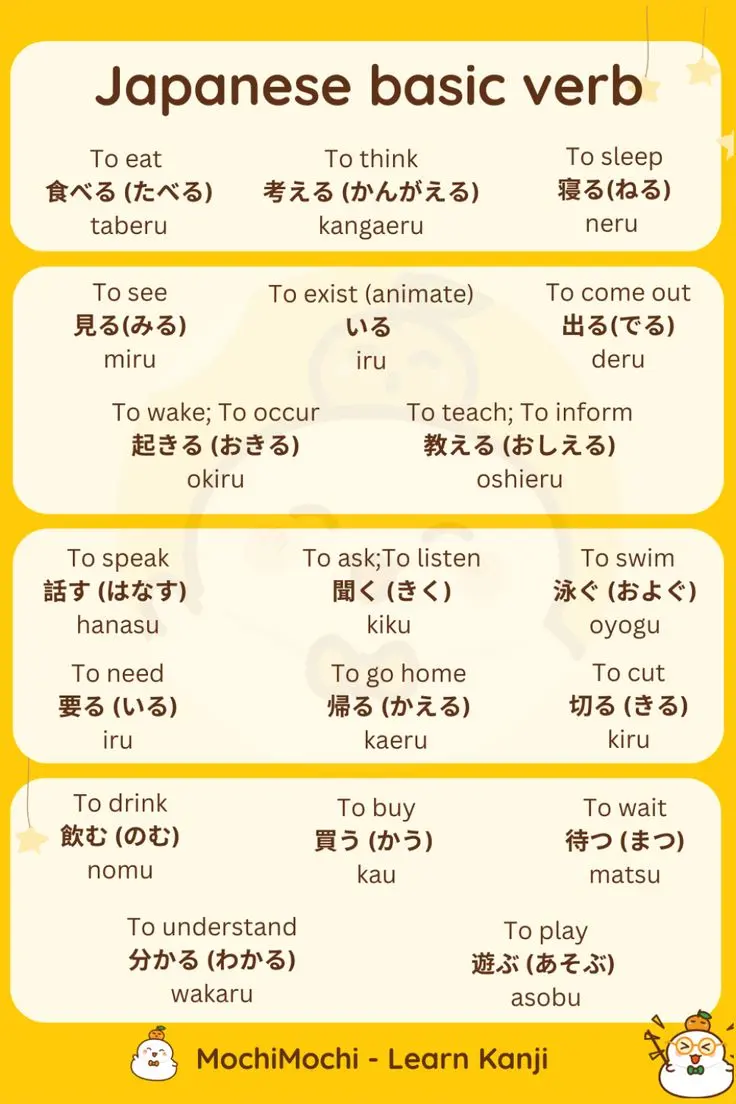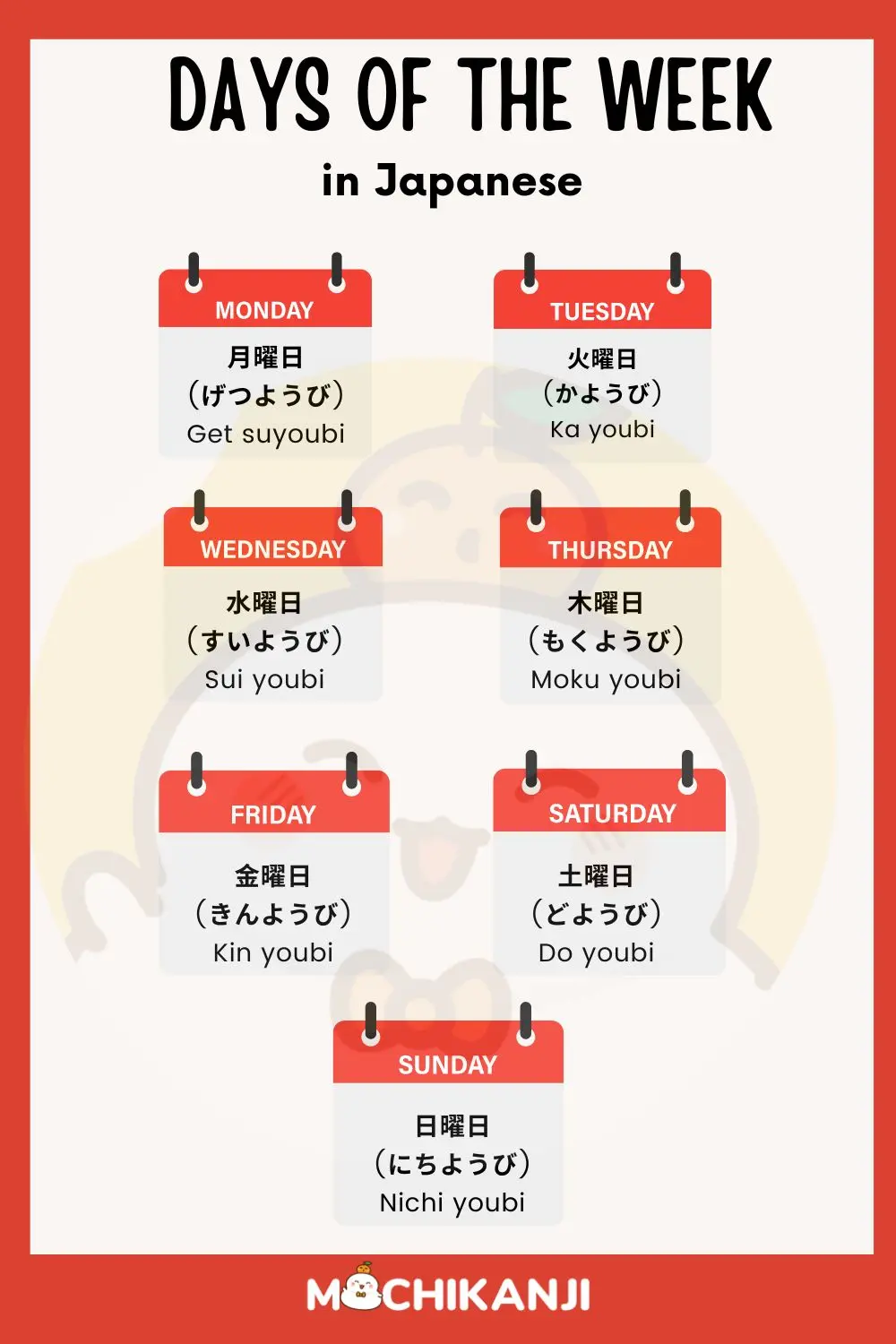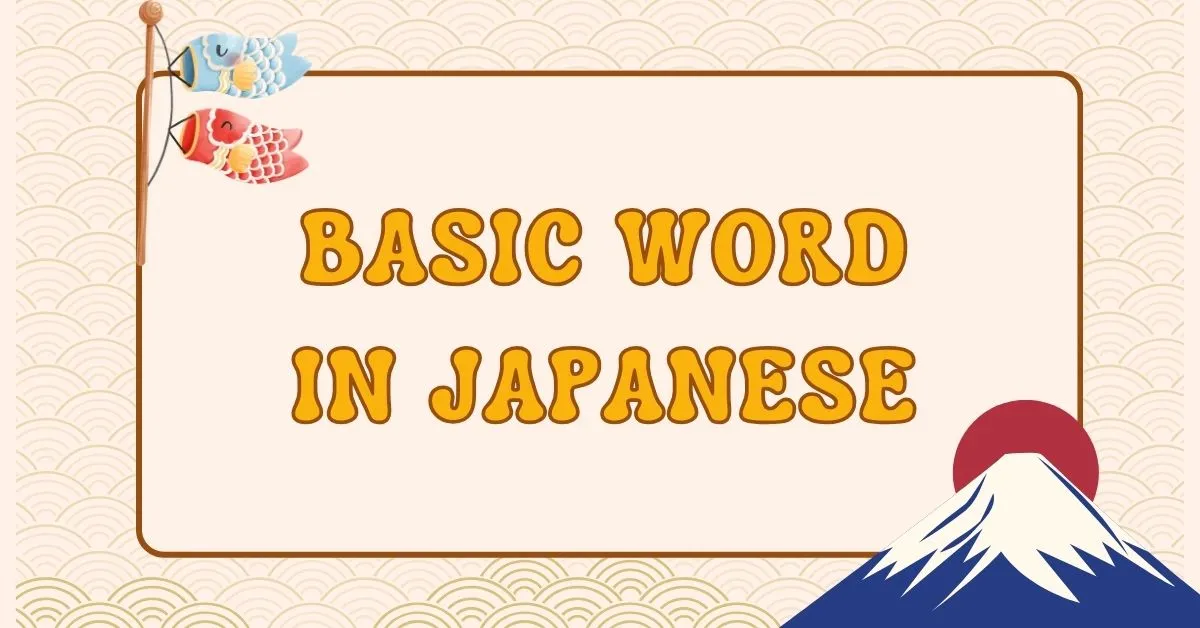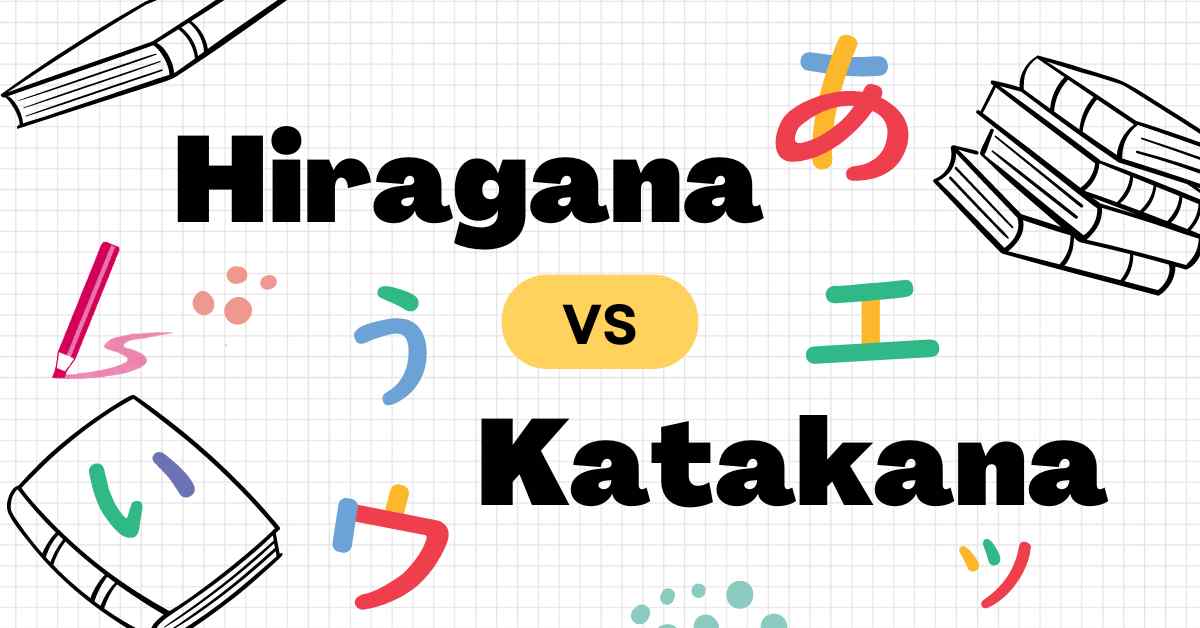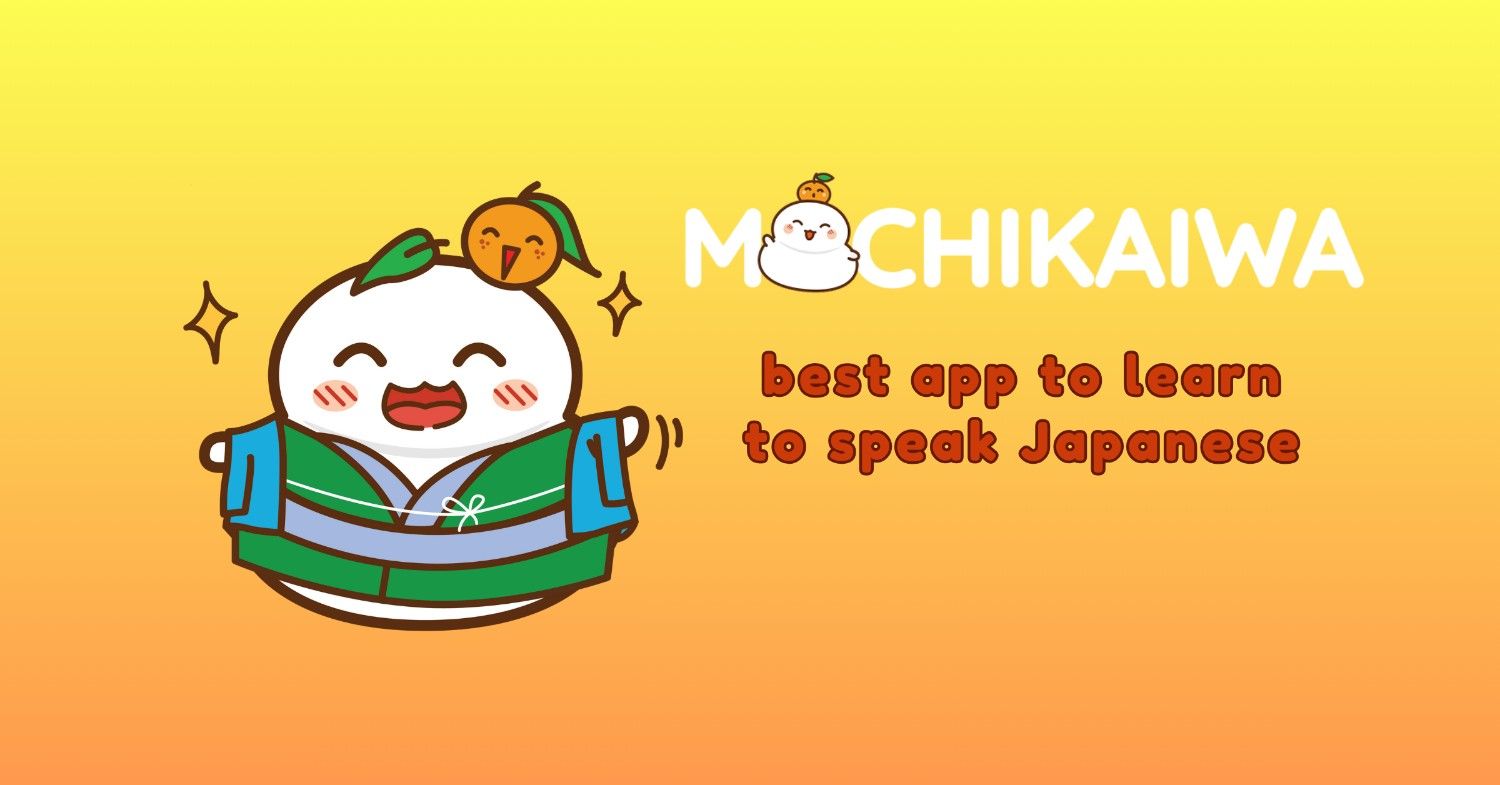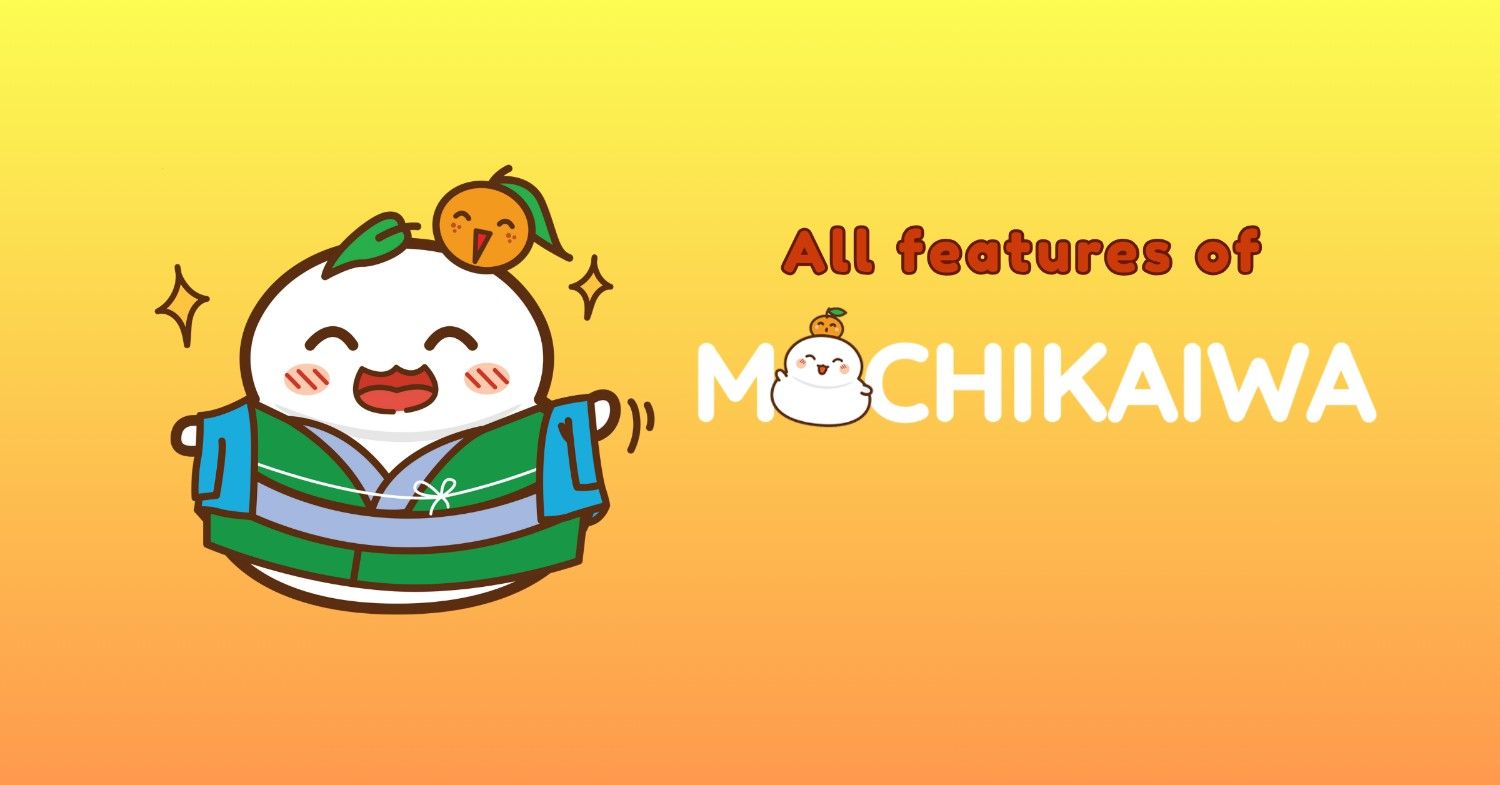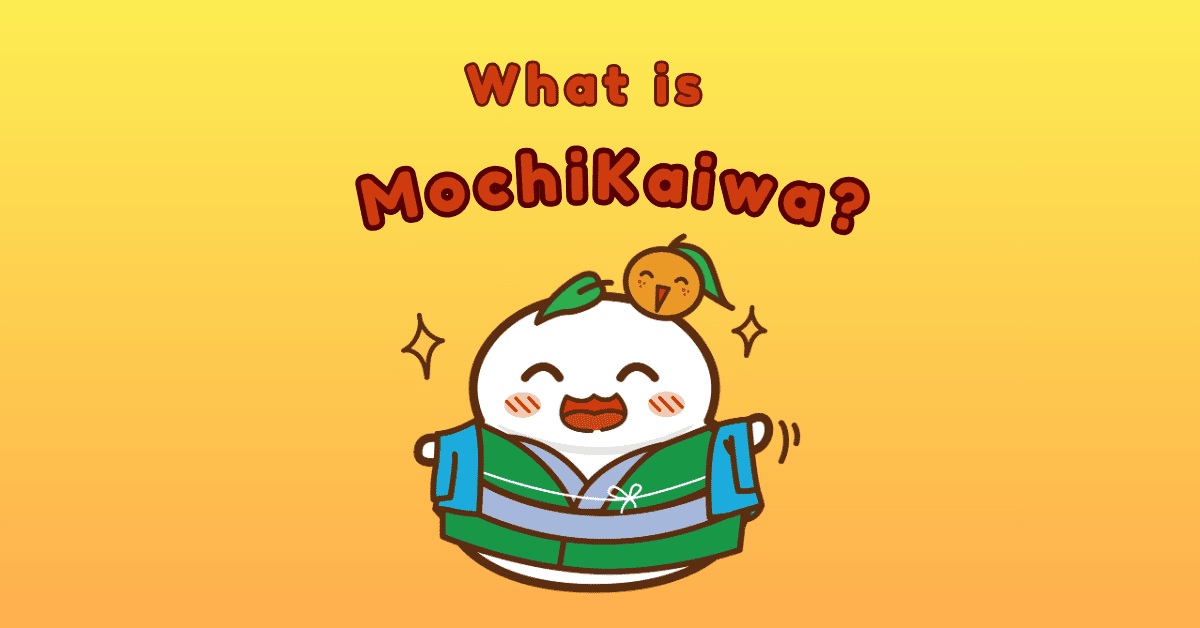Learning Japanese can be an exciting yet challenging journey, and having the right vocabulary at your fingertips is crucial for success. This essential Japanese word list is designed to provide beginners with key terms and phrases that will help build a solid foundation in the language. From everyday essentials to commonly used expressions, this guide will make your Japanese learning experience smoother and more effective.
- Basic greetings and expressions
- Essential nouns
- Useful verbs
- Common adjectives
- Days of the week
- Practical phrases
- Master Japanese vocabulary with MochiKanji
- Conclusion

1. Basic greetings and expressions
One of the first things to learn in any language is how to greet others and engage in simple conversations. Mastering basic greetings in Japanese will not only make you more comfortable but also show respect when interacting with native speakers.
- こんにちは (Konnichiwa) – Hello
- おはようございます (Ohayou gozaimasu) – Good morning
- こんばんは (Konbanwa) – Good evening
- さようなら (Sayonara) – Goodbye
- ありがとう (Arigatou) – Thank you
- すみません (Sumimasen) – Excuse me / I’m sorry
- はい (Hai) – Yes
- いいえ (Iie) – No
These expressions are vital for everyday conversations and will serve as a solid foundation for more advanced conversation. To build on this, check out MochiKanji’s conversation course, which offers a comprehensive approach to mastering these expressions and more.
Try it for free now!
2. Essential nouns
Nouns form the backbone of your vocabulary. Learning everyday items will help you navigate various situations, from asking for directions to describing your surroundings.
- 人 (ひと – Hito) – Person
- 学生 (がくせい – Gakusei) – Student
- 先生 (せんせい – Sensei) – Teacher / Doctor
- 家 (いえ – Ie) – House
- 学校 (がっこう – Gakkou) – School
- 本 (ほん – Hon) – Book
- 車 (くるま – Kuruma) – Car
- 食べ物 (たべもの – Tabemono) – Food
- 水 (みず – Mizu) – Water
- 猫 (ねこ – Neko) – Cat
- 犬 (いぬ – Inu) – Dog
- 友達 (ともだち – Tomodachi) – Friend
- 店 (みせ – Mise) – Shop/Store
- 時間 (じかん – Jikan) – Time
- 仕事 (しごと – Shigoto) – Work/Job
Discover more Japanese nouns with MochiKanji!
3. Useful verbs
Verbs are essential for constructing sentences and expressing actions. Here are some fundamental Japanese verbs that every beginner should learn:
- 食べる (Taberu) – To eat
- 飲む (Nomu) – To drink
- 見る (Miru) – To see, to watch
- 行く (Iku) – To go
- 来る (Kuru) – To come
- 話す (Hanasu) – To speak
- 書く (Kaku) – To write
- 聞く (Kiku) – To listen, to ask
- 読む (Yomu) – To read
- 歩く (Aruku) – To walk
- 買う (Kau) – To buy
- 使う (Tsukau) – To use
- 作る (Tsukuru) – To make
- 寝る (Neru) – To sleep
- 起きる (Okiru) – To wake up
- 勉強する (Benkyou suru) – To study
- 働く (Hataraku) – To work
- 教える (Oshieru) – To teach, to inform
- 遊ぶ (Asobu) – To play
- 入る (Hairu) – To enter
To master action verbs in Japanese, especially physical actions, MochiKanji’s vocabulary course is your go-to resource. It offers interactive flashcards and engaging practice to help you learn and retain key verbs effortlessly. Start learning with MochiKanji today!
4. Common adjectives
- 大きい (Ookii) – Big
- 小さい (Chiisai) – Small
- 新しい (Atarashii) – New
- 古い (Furui) – Old
- 高い (Takai) – Expensive / Tall
- 安い (Yasui) – Cheap
- 早い (Hayai) – Early
- 遅い (Osoi) – Late / Slow
- 美しい (Utsukushii) – Beautiful
- 汚い (Kitanai) – Dirty
- 面白い (Omoshiroi) – Interesting
- つまらない (Tsumaranai) – Boring
- 暑い (Atsui) – Hot (weather)
- 寒い (Samui) – Cold (weather)
- 熱い (Atsui) – Hot (to the touch)
- 冷たい (Tsumetai) – Cold (to the touch)
- 広い (Hiroi) – Spacious / Wide
- 狭い (Semai) – Narrow / Small (space)
- 楽しい (Tanoshii) – Fun
- 難しい (Muzukashii) – Difficult
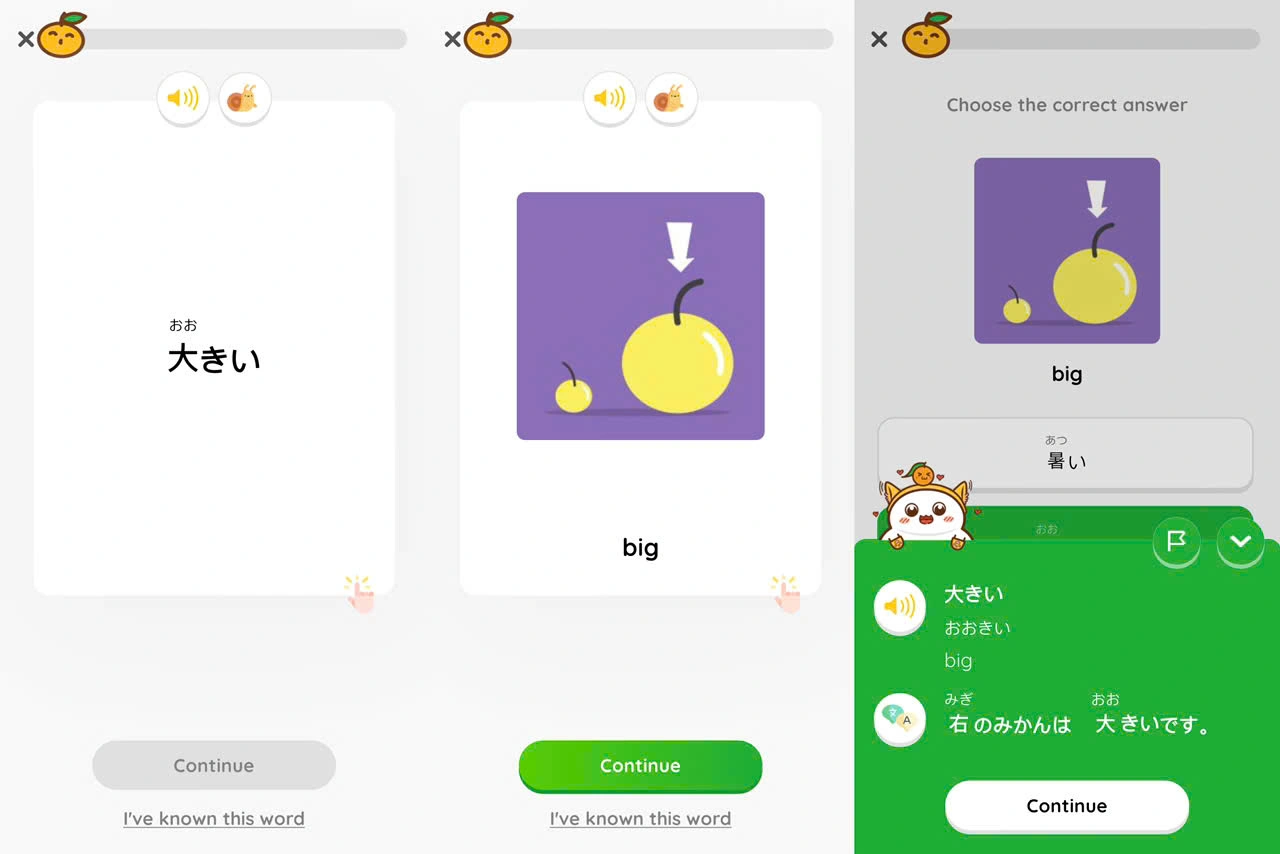
Enhance your Japanese skills by using MochiKanji flashcards to master common adjectives. With its spaced repetition system, MochiKanji ensures you remember these essential words effectively. Start incorporating these flashcards into your daily study routine today!
5. Days of the week
- 月曜日 (Get suyoubi) – Monday
- 火曜日 (Ka youbi) – Tuesday
- 水曜日 (Sui youbi) – Wednesday
- 木曜日 (Moku youbi) – Thursday
- 金曜日 (Kin youbi) – Friday
- 土曜日 (Do youbi) – Saturday
- 日曜日 (Nichi youbi) – Sunday
6. Practical phrases
To make your interactions smoother, it’s helpful to learn practical phrases that are used in everyday situations. Here are a few to get you started:
- いくらですか? (Ikura desu ka?) – How much is it?
- どこですか? (Doko desu ka?) – Where is it?
- 大丈夫ですか? (Daijoubu desu ka?) – Are you okay?
- お名前は何ですか? (O-namae wa nan desu ka?) – What is your name?
- トイレはどこですか? (Toire wa doko desu ka?) – Where is the bathroom?
Master Japanese vocabulary with MochiKanji
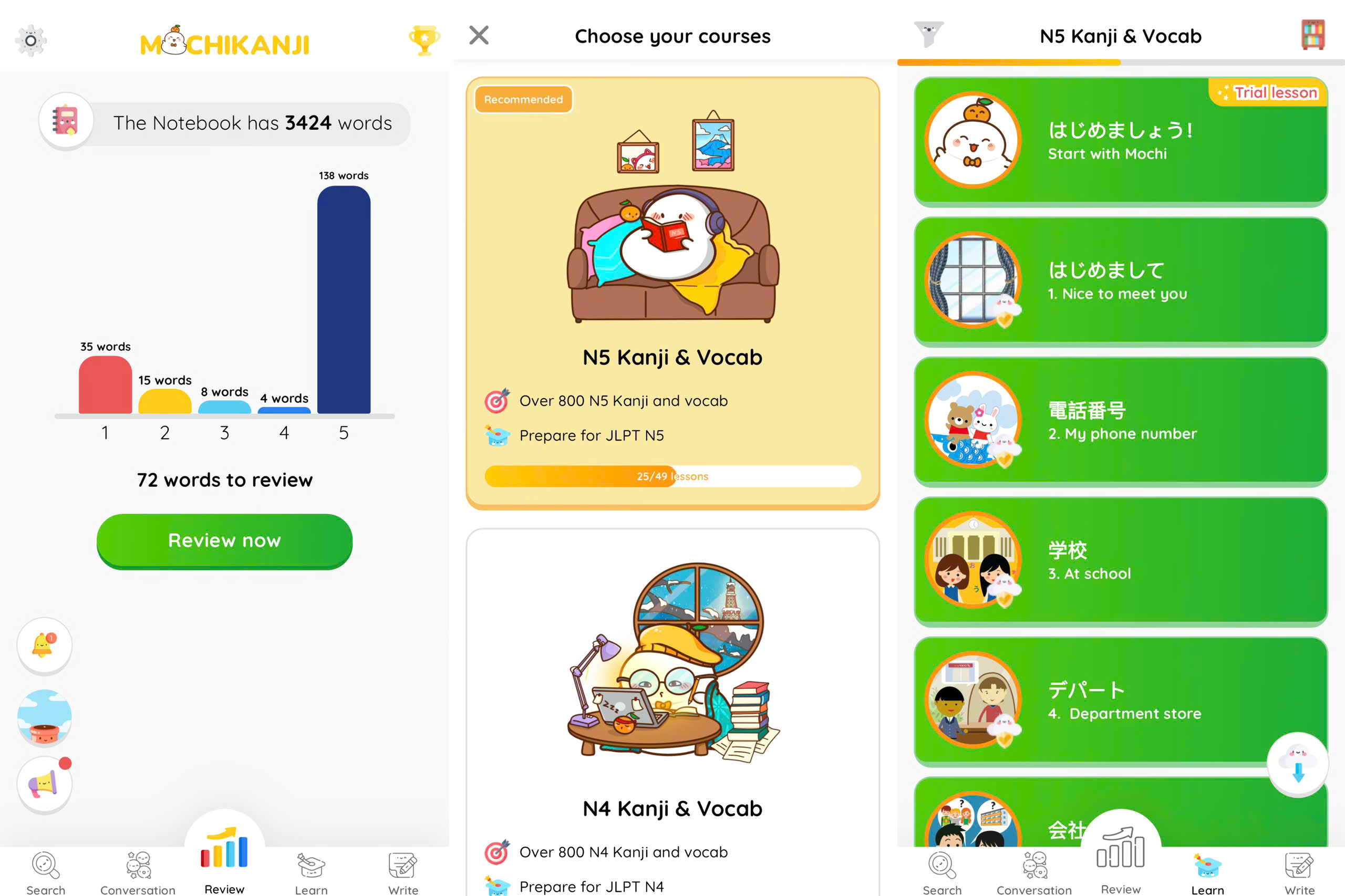
MochiKanji is a Japanese learning app that uses flashcards and the spaced repetition method to help you retain vocabulary more effectively. Notably, the app features a “golden time” reminder that prompts you to review words at the optimal moment, ensuring maximum learning efficiency. When learning the Japanese vocabulary mentioned in this article, use MochiKanji to create flashcards and review them daily. This practice will help embed the words deeply into your memory, enhancing your ability to recall and use the vocabulary.
Start your free trial now!
Conclusion
Building a strong foundation in Japanese starts with mastering key vocabulary. This Japanese word list is designed to give beginners a head start by providing essential terms and phrases. Incorporate these words into your studies to enhance your understanding and communication skills. As you progress, continue to expand your vocabulary and practice using these words in context to achieve greater fluency.

